FAIRFIELD — To the unfamiliar eye, Good Will-Hinckley has always been and still remains something of an enigma. The nonprofit organization, which sits on over 1,000 acres of land in the Hinckley portion of town and includes the state’s first charter school, has long been associated with troubled youth from unsafe homes.
Today, the school campus is still that. But it’s also much more.
In 2012, the campus was named the site of the state’s first charter school by the Maine Charter Commission. Since that time, the programming at the school and the rest of Good Will-Hinckley have flourished and expanded. It continues to grow today.
Good Will-Hinckley President and Director of Development Ken Coville hasn’t been at the helm long. He was named to his post this past July after former president Glenn Cummings left in 2014 to become president of the University of Southern Maine. Current Good Will-Hinckley Executive Director Rob Moody served as interim president until Coville’s appointment.
“The real focus is flexibility, diversity and responsiveness,” Coville said in an interview Monday from his office at the school on Prescott Drive. He added the focus on those attributes was for “whatever the state and community needs.”
Coville explained the school is made up of a lot of different parts centered around the Maine Academy of Natural Sciences, a charter school focused on hands-on learning experiences for its students in areas such as agriculture, zoology and botany. The academy recently completed its first charter, and last week it was awarded a new five-year charter.
Moody said there has been considerable growth at the organization over the last five years, which has allowed them to help more kids. There are just under 150 students at the academy, but Moody said the plan is to raise that number to 200 in the coming years. He said with all their partnerships and programming, they are helping about 200 children and adults now, and the goal is to continue to grow that number as well.
“We want to maximize our floor plan here and fill up all the buildings we have and help those that need it,” Moody said.
PASSING THE THRESHOLD
The organization was first opened in 1889 by George Walter Hinckley and had a 125-year run as a residential facility for at-risk and homeless youth. It sits just about dead center between the Skowhegan town line and Main Street in Fairfield.
But in 2009, the school closed, in part due to lack of private donations during the recession. During that time, the organization worked to secure funding.
Battling back, the organization sold a large portion of its campus to Kennebec Valley Community College, and in 2011 it reopened as the Maine Academy of Natural Sciences.
Those successes had to compete with political turmoil in 2015. Speaker of the Maine House of Representatives Mark Eves was tapped to become the organization’s president, which provoked the ire of Gov. Paul LePage. The well-documented dispute between Eves and LePage resulted in Good Will-Hinckley rescinding its offer to Eves. The former House speaker sued LePage, alleging the governor threatened to withhold state funds from the school over political differences, but the lawsuit was dismissed.
Tonya Arnold, principal at the academy, said the goal now is to increase the school’s population by an increment of 20 students each year, which she said would not cause a disruption in the existing system.
“We feel like the current facility and what we’ve established for kids is at a good size,” Arnold said
The new charter allows for increased programming. One new program is aimed at teens who otherwise couldn’t be in the classrooms.
Emanuel Pariser, the director of curriculum and instruction at the Maine Academy of Natural Sciences, said he had started a program similar to Threshold in 1992 at the Community School in Camden aimed at students who became pregnant during their time in high school. He said in a traditional school environment, there was not much that was offered to these teenagers, especially those who became pregnant during the course of high school and dropped out.
“When I came here in 2010, I brought the idea,” Pariser said. The idea sat on the back burner for a handful of years, but it remained on everyone’s mind.
The Threshold program, which goes into effect this coming September, is a program aimed at getting pregnant or homebound teenagers who have left school without a diploma to rejoin. The program will send educators to the students’ homes as well as connect with them electronically. Once every two weeks, on Mondays, the school will provide transportation to bring the students to the school site. During those visits, Good Will-Hinckley will provide child care for the student parents. In addition to completing their high school diploma, these students have access to college course work through the academy’s partnership with Kennebec Valley Community College in Fairfield.
“We anticipate 20 students served in the first year,” Coville said, with the goal of serving a total of 40 students going forward.
Pariser said students for the Threshold program will be selected the same way they are for the charter school itself. If there are more applicants than there are spots, they will hold a lottery. He said they will be working with partner agencies to find applicants. In the first year, there will be one teacher per 10 students. The teacher will make a trip to a student’s home once a week, and the students will be transported to the campus once every two weeks, where there will participate in small group work.
The curriculum and programming will vary depending on the student, as the students will likely be of varying ages and skill levels. For example, Pariser said, an 18-year-old student might have been out of school for years, but would have different life skills gained from work experience.
For the time being, the Threshold program will be a non-residential program, though Pariser said “somewhere down the road” they may look to have a residential aspect.
“I also think it’s one of those things … where we can help to make a difference for everyone,” Pariser said.
MORE THAN A SCHOOL
Good Will-Hinckley is made up of a lot more than just the academy, though. Coville explained the campus also serves as home to the Glenn Stratton Learning Center, an educational facility for students with emotional and behavioral issues who are unable to take part in their local public schools. Coville said there are currently 20 students being served at the kindergarten through grade 12 center with the goal to expand that to 25 total students. He said the center equips these students with the skills to be able to re-enter their public schools.
There is also the Campus Step Up Program, which is for former foster care youth looking to continue their education. The students live on campus and are interested in attending KVCC or another college, and Coville said the program gives the students year-round housing and support services. He said while many colleges do provide support services, there is often a housing barrier for students who don’t have homes to return to on breaks. Moody said there are currently eight students in this program with the goal of growing that number to nearly 30 in the next few years.
Coville said with the Threshold program and the Campus Step Up program, the number of people served has grown to about 200 students. Arnold said all these programs help “preserve the small community feel” while also allowing them the opportunity to keep expanding.
Pariser recalled that when the academy first opened, there were 21 students, three teachers and two co-directors. He called it a very small operation, but one where they were “trying to create a new learning opportunity.” In the first year the organization operated as an independent school, and the following year it was named a charter school. Now the school has nearly 150 students.
“The student population has really ramped up over that time,” he said.
In that time, Pariser said most of the core principles of the school stayed the same, but the approach became more “fine tuned,” creating more hands-on experiences for the students all related to the theme of agriculture. One thing the school stresses, Pariser said, is a connection between students, teachers and the families. The students are a very diverse group, he said, ranging from troubled individuals who really struggled in school to those who were not challenged by what their school had to offer. In any case Pariser said the support system is critical to getting students back into the education process.
“A lot of times the things they’re capable of are things traditional schools might not be interested in,” Pariser said, which can often lead to negative feedback for the students. At the academy, he said the students are honored for the things they can do, which in turn might help them be more willing to try again at the things they found difficult in a traditional school environment. He said the school fulfills a basic human need: being accepted for who you are.
One such student, Ben Soggs, came to Good Will-Hinckley and the academy last year as a sophomore. Originally from Cape Elizabeth, he said he suffered a double concussion playing football, which led to anxiety and depression, which led to trouble reintegrating in school.
“I felt like an outsider,” Soggs said.
He said he found the academy and discovered a place that tailors its lessons to a student’s ability with more hands-on learning. He came in as a sophomore, but because of how he paced his learning, he was able to skip a year and is now a senior. Soggs lives in the dorm cottages on campus during the week, then goes back to Cape Elizabeth on the weekends.
Though it is the largest piece of the puzzle, the school is not alone on the Good Will-Hinckley campus. In addition to it and the Glenn Stratton Learning Center, the campus is also home to the L.C. Bates Museum, which Coville said provides outreach educational opportunities for students in the area and showcases Maine wildlife. There is also the Ryerson Memorial Library, which is available to see by appointment.
Coville said the organization just initiated a partnership with the Maine State Housing Authority and Department of Health and Human Services to provide stable and safe housing for homeless individuals between the ages of 18 and 25. Unlike a homeless shelter, the program doesn’t require the individuals to leave during the daytime hours.
“Rather, we provide the individuals a home,” he said.
LASTING IMPRESSIONS
Despite all this, there’s still a stigma surrounding Good Will-Hinckley. Even with all its programming and offerings, assumptions about the school and organization still get made that it’s just a place for troubled individuals.
Those assumptions don’t accurately reflect those served by the organization.
Moody said people still wrongly make the assumption that the school and organization only exist to serve troubled youth. He said they serve “kids that need a helping hand,” and that doesn’t mean they’re troubled kids.
“A lot of kids are non-traditional students that just need a different environment and a helping hand to go on the right track,” he said.
Most of those served, Moody said, would succeed anywhere they chose to go to school.
“They just need a different environment, and we pride ourselves in offering that,” he said.
Pariser said it’s a challenge to broaden that concept. He said the mission of Good Will-Hinckley has always been to “look out for kids in difficult times” and the academy meets the needs of a variety of students. He said the goal is to create a more inclusive learning environment for students and to get students interested in the ideas at the academy. They don’t want to be thought of as just a school for problem students.
“The whole idea of where we are and who we serve is expanding,” Pariser said.
Now Pariser said he and others feel “validated” by getting approval from the Maine Charter Commission for a new, five-year charter. In the coming years, Pariser said, the organization will continue its efforts to expand programming. One project that is intriguing is a sustainable agriculture program, he said, where students grow a substantial amount of the food used in the cafeteria. He also said the school will continue to increase its connections with local colleges.
Moody said they will continue to expand as the years go on. Currently three residential cottages are being used by about 30 students at the academy, and Moody said they want to open up more. In the meantime, they will keep expanding their programs and searching for partnerships to help more people in need.
“We hope to put our buildings and expertise to work for those who need it,” he said.
Arnold said they’re still working on how best to keep growing in the future. They want to make sure they remain a place for students to prepare for their lives outside of the school. To do that, they must keep fostering relationships and provide avenues for progress.
“What we really want to focus on is making sure any growth allows us to continue to foster those really strong adult-student relationships here,” she said.
The assumptions made about Good Will-Hinckley and the school don’t have to be negative. Soggs said it is a place for “unconventional learners,” people who have been bullied or ostracized in their schools. He had only positive things to say about his school, calling his time there “excellent.”
“The pace is tailored to whatever you want,” he said.
Colin Ellis — 861-9253
cellis@centralmaine.com
Twitter: @colinoellis
Send questions/comments to the editors.


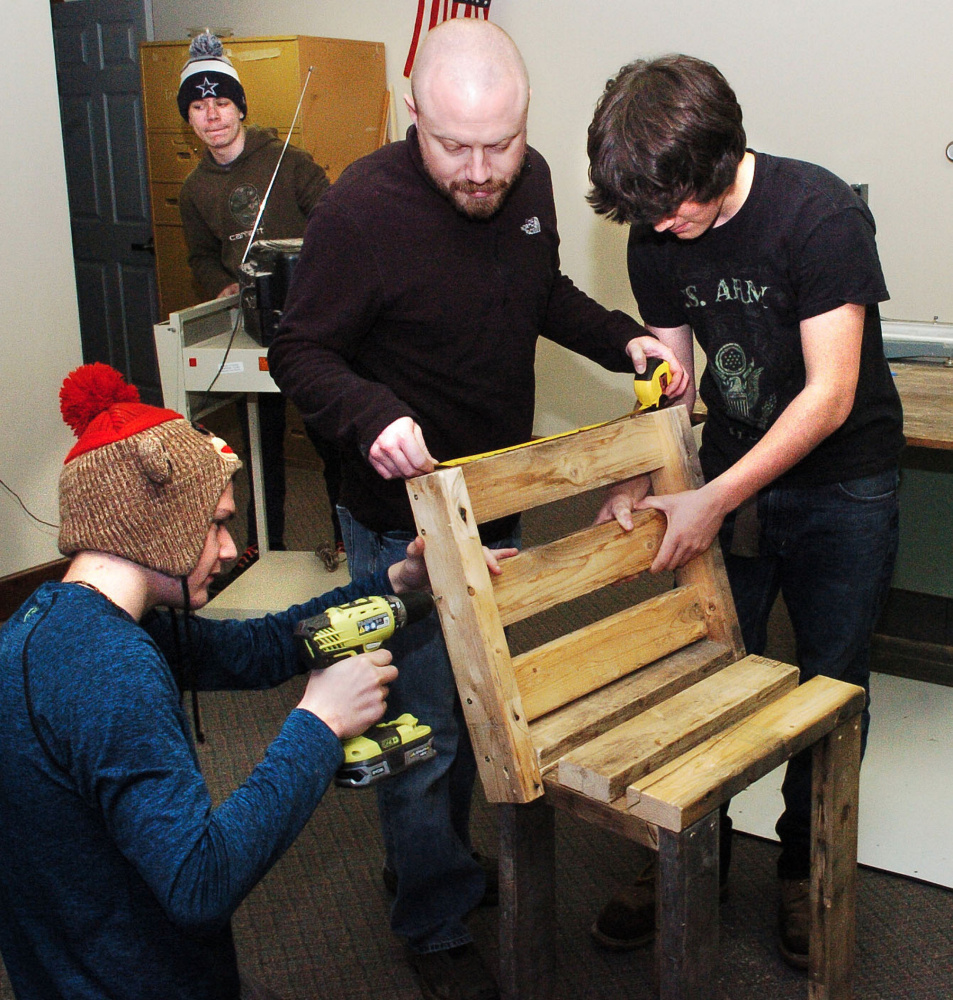
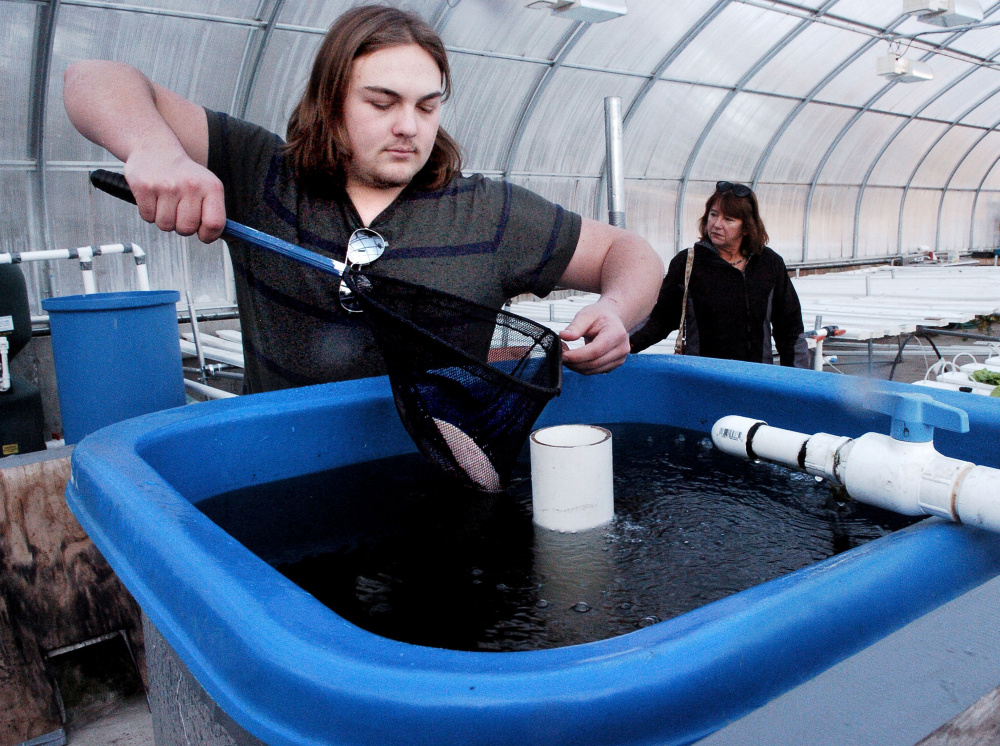

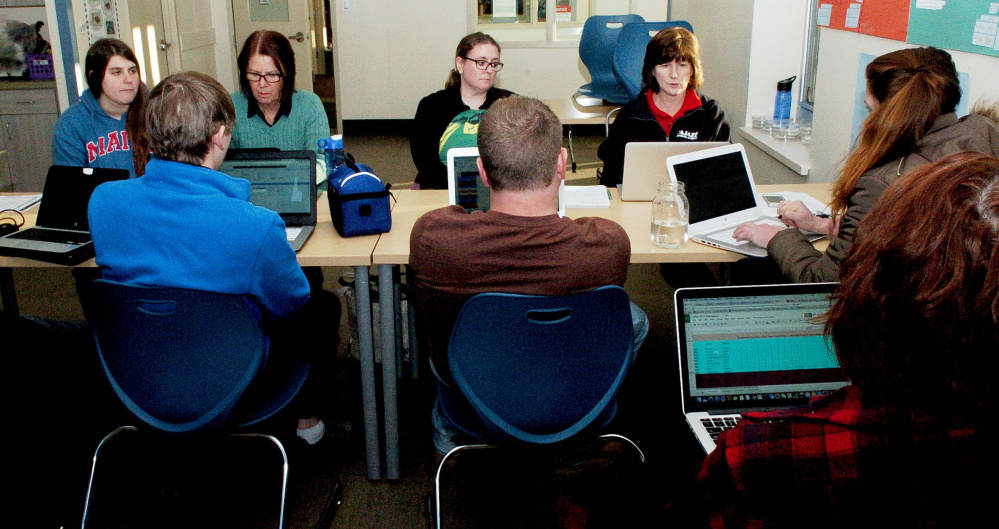
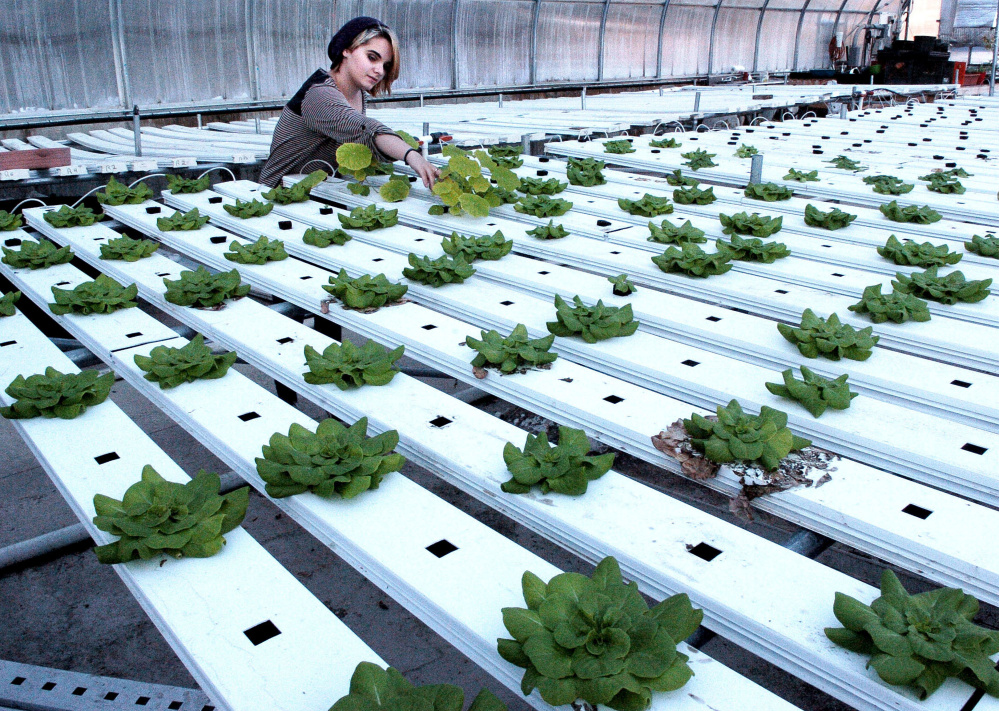
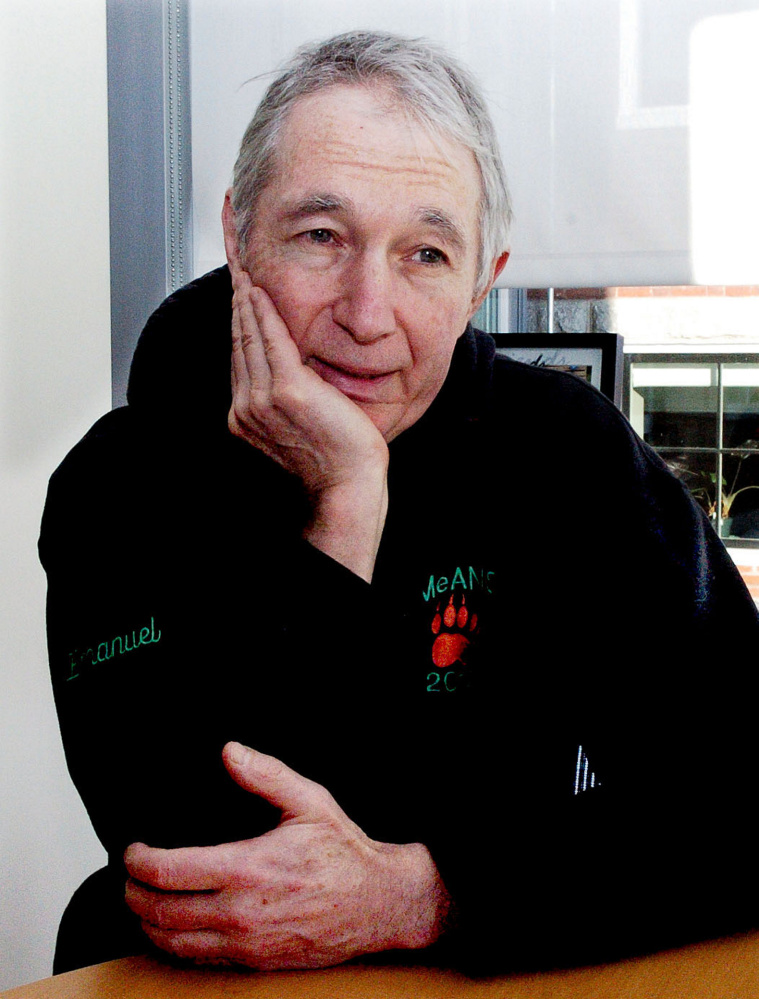

Success. Please wait for the page to reload. If the page does not reload within 5 seconds, please refresh the page.
Enter your email and password to access comments.
Hi, to comment on stories you must . This profile is in addition to your subscription and website login.
Already have a commenting profile? .
Invalid username/password.
Please check your email to confirm and complete your registration.
Only subscribers are eligible to post comments. Please subscribe or login first for digital access. Here’s why.
Use the form below to reset your password. When you've submitted your account email, we will send an email with a reset code.